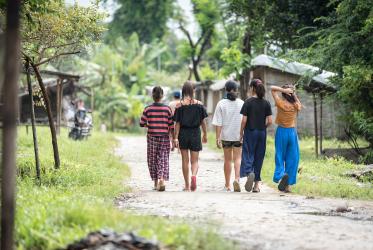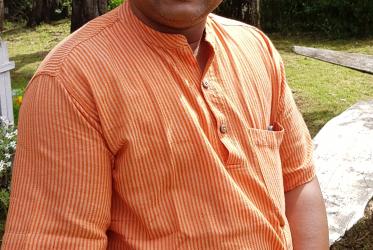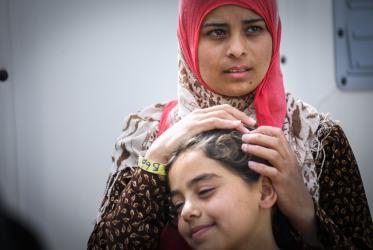Displaying 1 - 20 of 28
In a COVID-stricken world, “everyone is important”
23 October 2020
The cry of the Papuans in Indonesia
14 November 2019
Markus Imhoof film receives human rights award
10 October 2019
A faith-based, holistic approach to HIV and AIDS-care
13 March 2019
Faith and HIV treatment go hand in hand
06 March 2019
Turning mercy and compassion into action
04 March 2019
On the journey to HIV – bridging gaps, debunking myths
21 February 2019
Christian communicators work to counter hate speech against refugees
10 December 2018
Children on the Move forum gathers in Rome
16 October 2018
Dr Samuel George: “Ensure all are included"
12 June 2018
Not just numbers, displaced people need to share their stories
01 February 2018
Christians in China warmly receive WCC delegation
12 January 2018
"I hit the ground running": Katalina Tahaafe-Williams
16 February 2016
Fleeing from – rather than to – a place
10 February 2016













